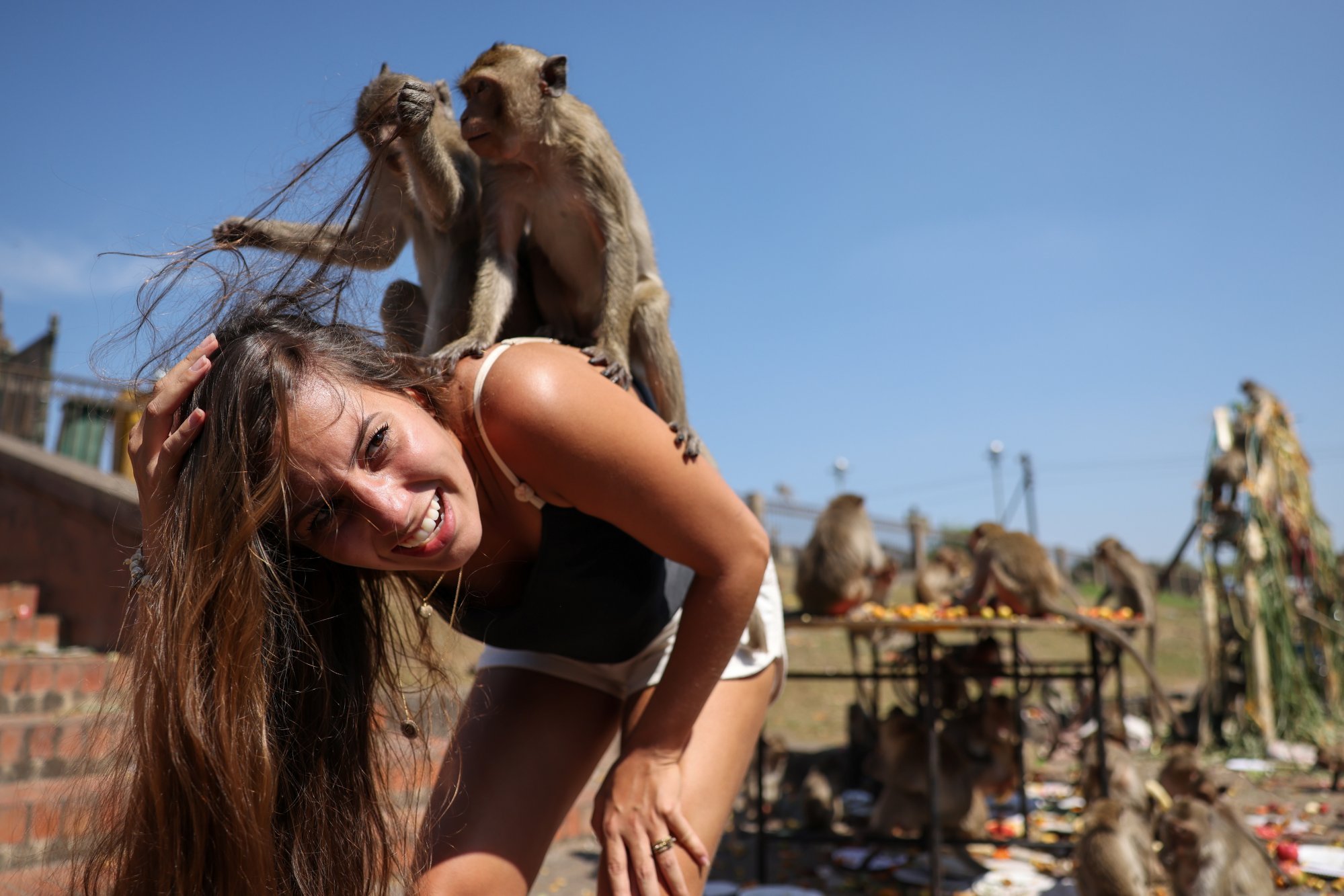
3,500 monkeys take over Thai city, putting Chinese investments on hold and making residents flee
- Once a thriving trade hub, Lopburi city is at risk of becoming a ghost town with thousands of simians swarming the area, destroying shops and harassing visitors
- The mischievous monkeys have deterred people from visiting the local shopping centre and the dwindling retail footprint has led to it being put up for sale
Several companies and stores have shut their operations and fled Lopburi city, once a thriving trade hub in the province, with some 3,500 simians taking control of the area.
Surachat Chanprasit, a representative from Pingya Shopping Centre, said monkeys frequently swarmed the establishment and harassed the customers who came to shop.
They also damaged store fronts, forcing owners to shell out for repair works and hastening their exit from there.

The mischievous monkeys have deterred people from visiting the local shopping centre and the dwindling retail footprint led to it being put up for sale two years ago.
But the property was still on the market despite its price being reduced from 100 million baht (US$2.8 million) to 70 million baht, underscoring the growing commercial toll on the monkey-occupied city.
The shopping arcade’s management also cut the rent to help tenants tide over the crisis after they sought to end their leases.
“Previously, a Chinese investor had visited the area to check the feasibility of an investment,” Surachat said.
Monkey attacks, sexism, a punch-up: welcome aboard the cruise from hell
“However, when the investor realised that the problem of monkey population threatening the heart of the city had not been solved, he postponed the investment indefinitely.”
The Lopburi Chamber of Commerce said rules limiting the height of buildings and maintaining the condition of the heritage structures had compounded the problem, Khaosod reported.
Pongsatorn Chaichanapanich, the lobby group’s chief, said businesses had deserted the area opposite to the popular Phra Prang Sam Yot temple.
He added policy changes, including amending the law to allow the management of monkeys in urban areas, were needed to revive the city’s economy and boost tourism numbers.
“The government needs to decide at the policy level how it will develop Lopburi as a historical city with many historical sites and how the government will help promote tourism in the province and attract more tourists,” he said.

Lopburi province and its army of monkeys have long been a draw for tourists from around the world, who typically feed them and pose with them for selfies.
The region also holds an annual monkey festival to thank the animals for helping to attract visitors to Lopburi.
Provincial governor Ampol Angkhapakornkul recently visited the city and pledged to work with the Department of National Parks, Wildlife and Plant Conservation to tackle the problem.
